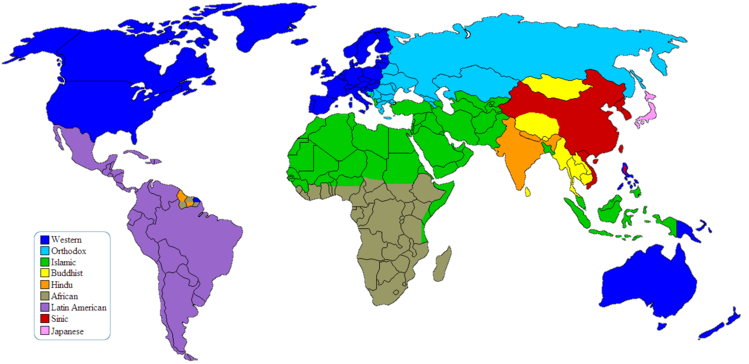
This is a re-post of an essay I wrote for The National Interest a week ago.
Basically my argument is that even if you are a hawk on China and see it as an emerging competitor or even threat to the US, the clash of civilizations framework is a weak analytical model by which to understand Sino-US tension.
The big problem is that Huntington builds his civilizations everywhere else in the world around religion, but in East Asia he can’t, because that would make China and Japan – who are intense competitors – allies in a Confucian civilization. Making Japan and China allies would be ridiculous, so Huntington can’t use Confucianism as a civilization, even thought that so obviously fits his model for East Asia. Hence, Huntington falls back on national labels, identifying separate ‘Sinic’ and ‘Nipponic’ civilizations. This ad hoc prop-up of the theory undercuts Huntington’s whole point of arguing that national distinctions are giving way to civilizational ones and that therefore we should think of future conflicts as between civilizations, not nation-states. Well, apparently East Asia didn’t make that shift; conflict here is still nationalized. So
There are other issues I bring up as well, but that’s the main problem. Please read the essay after the jump…









